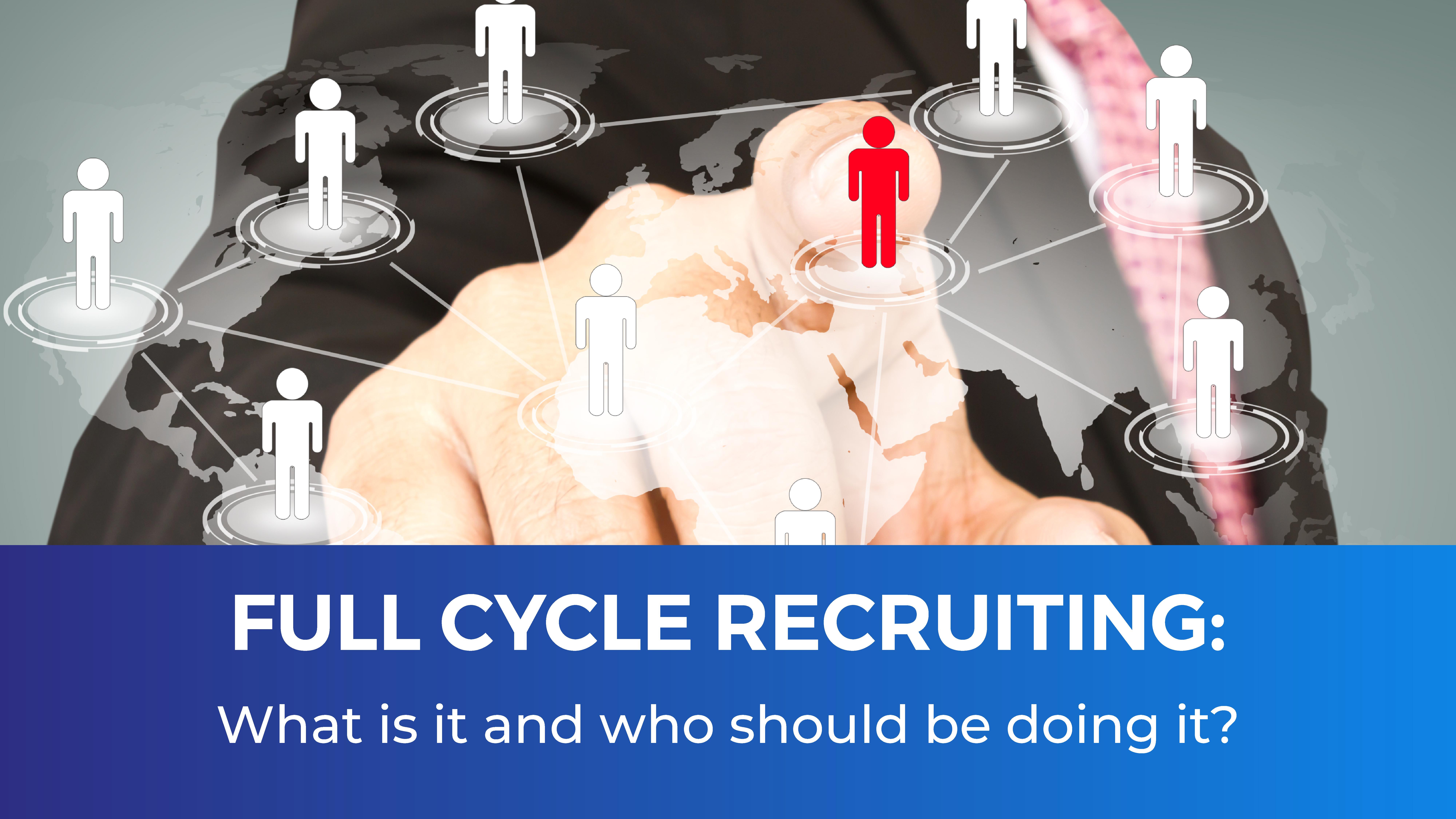
23
MarFull cycle recruiting: what is it and who should be doing it?
Current recruitment and selection practices might not be able to bring in top talent in a changing labor environment. In order to compete for talent, businesses may need to upgrade their hiring procedures or look for new technologies, resources, and workflows. One workflow that frequently succeeds is full life cycle recruiting
What is full cycle recruiting?
A complete recruitment process with a full cycle recruiter involved in each step is referred to as "full cycle recruiting," also known as "full life cycle recruiting" or "end-to-end recruiting." Six major steps make up a complete cycle of the recruitment process: planning, sourcing, screening, choosing, hiring, and onboarding.
A full cycle recruiter is able to fulfill each stage of the recruiting cycle, from the vacancy intake and sourcing of prospects all the way through the extending of a job offer and the onboarding of a talent.
The person in charge of full life cycle recruiting may vary based on the scope of the organization. This is frequently the HR generalist who also serves as a full-cycle recruiter in a start-up or smaller organization.
Every member of the people team in larger firms works primarily in an HR department, where they are all experts in different phases of the hiring process. There will, however, always be a person monitoring the whole process.
Of course, businesses might also choose to outsource the entire hiring process.
Let's understand the full life cycle recruiting process defined by the best staffing agency in Nagpur.
The full cycle recruiting process
Six phases make up the full cycle of the hiring process. If any of these are neglected or improperly handled, it may hinder a company's chances of quickly attracting top talent. On the other hand, those who succeed at each of the ensuing levels may find it less difficult to endure changes in the job market.
Preparation
The preparation stage of comprehensive recruiting begins with a vacancy or the opening of a new post, during which businesses create new job descriptions or update old ones. But before starting to write, it could be helpful to picture the ideal candidate. What part will they play in the company? Which credentials are required? These kinds of inquiries can help recruiters make job advertisements more successful.
Sourcing
Employers must find their target candidates where they are most likely to be discovered after the job description is finished. For instance, a candidate at the entry level may conduct his or her job search differently from a candidate with substantial experience in a specialized field.
Screening
By evaluating resumes and applications and calling prospects to do phone pre-screening, employers can reduce the candidate pool. Such inquiries, when customized to a particular position, can assist recruiters in determining whether a candidate meets the requirements for the position. Person-to-person interviews may be offered to applicants who impress during the preliminary interviews.
Selection
Employers can evaluate each applicant fairly by comparing their responses to the same requirements. The candidate's qualifications, work history, interview skills, and any additional job-related data should all be taken into account before making a decision.
Hiring
Recruiters issue a conditional offer after selecting a candidate that includes important employment information, including the position's title, pay, and start date. Employers may get in touch with references or run background checks if the applicant accepts the offer and gives written consent.
Onboarding
Onboarding is more than just a paper exercise. It involves capturing the attention and loyalty of potential employees. Companies with successful onboarding programs focus on the three "C's" of connection, comfort, and culture to increase productivity and retention.
Pros of full cycle recruiting
Employers with a successful full-cycle recruiting strategy may be able to:
1. improve candidate interactions
2. reduced hiring time
3. increase the rate of talent acquisition
4. lower the cost of hiring
Cons of full cycle recruiting
Full life cycle recruiting might be difficult for small businesses with only one recruiter as the volume of hires increases. The demand is too great for one person to handle, and thus hiring times and rates for finding talent fall.
Because of this, large businesses typically employ teams of hiring managers, each of whom plays a specific role in the entire hiring procedure. As an example, one team might handle candidate sourcing exclusively while another takes care of onboarding.
If you are looking for a recruitment agency to handle your company's full cycle of recruitment, Montek Services, one of the top IT recruitment companies in India, helps their clients with full-lifecycle recruiting and hiring the best talent.
Contact Montek Services today to get the best recruitment services.
Author -

HR Recruiter

